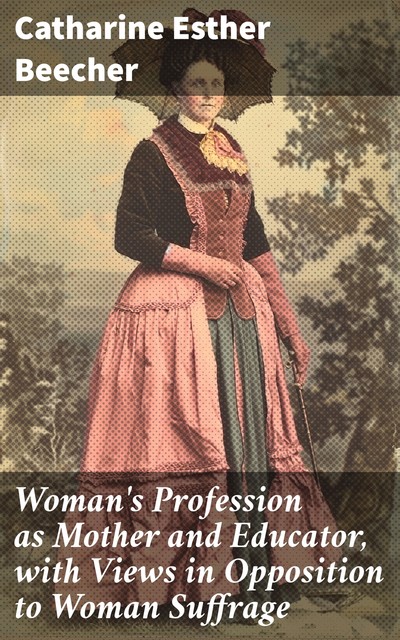In “Woman's Profession as Mother and Educator, with Views in Opposition to Woman Suffrage,” Catharine Esther Beecher presents a compelling discourse on the pivotal roles of women as mothers and educators in the 19th century. The book articulates her belief in the intrinsic value of women's influence in the domestic sphere, asserting that their primary purpose lies in nurturing and shaping future generations. Beecher'Äôs literary style is didactic and persuasive, employing eloquent arguments that reflect the prevailing socio-political climate of her time, particularly in relation to the burgeoning women's suffrage movement. Through her systematic examination of women's capabilities, she defines the significance of education in developing ideal mothers who will guide moral and intellectual growth in society. Beecher, a prominent educator and author with a strong commitment to women'Äôs education, draws from her own upbringing and professional experiences, notably influenced by her family's progressive values and her scholarly background. She founded several institutions for women's education and actively promoted the idea that true womanhood is rooted in domesticity. Her opposition to woman suffrage stems from her conviction that women'Äôs power lies in their immense capabilities within the home, further reinforcing the educational foundations for future societal advancement. This book is essential reading for those interested in women'Äôs studies, educational history, and 19th-century feminist discourse. Beecher'Äôs arguments, while controversial, provide profound insight into the complexities of gender roles and societal expectations, making it a significant work for understanding the historical context of women's rights and education. Readers will appreciate her articulate perspective, which invites them to engage with the ongoing dialogue regarding women's roles in both domestic and public spheres.


